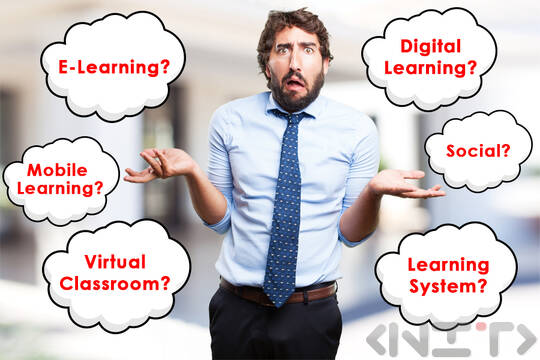
Approximate reading time: 1m 57s
When it came to education, by the early 2000s the model was quite clear - physical presence was undoubtedly the best option and any other type of training doubtful. With the advent of the Internet, the situation is radically changing. Technology is advancing to such an extent that the geographical difference is overcome by the use of tools that create the feeling that you are in a classroom.
With its introduction, e-learning was a term of online learning that contained LMSs LCMSs, programs, assessment tools, web conferences, etc. Nowadays, providers use it, calling content in their training systems, in an attempt to differentiate it from the classroom concept (ILT).
Terminology is a severe problem for the perception that is not fully resolved. Instead of confusing your students further, bring more clarity. Call your eLearning courses or videos what they are.
When users hear about a multimedia application creation program, they may not fully understand its functionality and capabilities, but they know for sure that they will be able to create courses through it. Many Articulate Storyline buyers believe that it is an online training tool, but they are wrong. It does not have the option of fully building your course online, such as Articulate Rise.
Any web conferencing tool will allow you to make a webinar. The perception problem here is not about its features or what it is, but many providers call it a Virtual Classroom. Why is it necessary? Call it what it is - plain and simple. This is a platform for creating webinars that are similar to seminars but only run online. In the corporate space, consumers immediately associate the term "seminar" with a physical meeting. On the other hand, the abbreviation "ILT" is much less understandable.
Do you have a clear idea of what Digital Learning means? There's no one. Providers for some reason believe that calling their e-learning digital will give them a more modern sound. The result? They create even more chaos in the minds of already confused users.
There is no other sector in the eLearning industry that is causing more turmoil and more problems than training systems platforms. The terms are at the root of this misunderstanding because what e-space calls somehow does not always mean what people think it represents.
What do you understand when you hear about mobile training? No, the provider does not offer a mobile application. This means that you have access to the system through your mobile web browser.
LMS reports, course reports, training results ... Each LMS provider uses one or the other terminology.
Again, the term "social learning" is not what you assume. It was created on the basis of a simple premise - social media related to learning, which is tantamount to social learning.
Data preview? Merchants like to mention it, but that doesn't mean a bar chart, graph, or pie chart you can make in Excel.
Do you get frustrated when you hear about a grade or test? How about a quiz? The second sounds more welcoming, doesn't it? You understand that the way you choose your words creates a different impression. Consider carefully what terms you use, as this is of great importance to your users.



